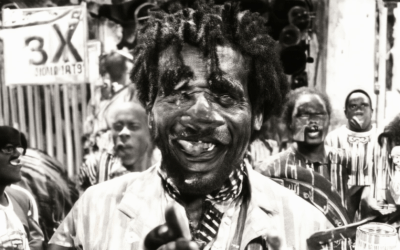Soul music, a profound expression of African American culture, extends far beyond mere melodies and lyrics. It serves as a powerful catalyst for social change, weaving itself into the fabric of history and inspiring movements for justice. From the civil rights era to modern-day struggles, soul music has consistently been a voice for the marginalized, blending emotional depth with a call to action. Its influence spans genres and generations, proving that music is not just entertainment but a tool for protest and transformation. As we explore the intersection of soul music and social justice, we uncover how this art form has shaped societies, challenged inequalities, and continues to inspire global movements for a better world. How did soul music affect society? How does music play a role in fostering social justice? These questions and more will be addressed as we delve into the rich tapestry of soul music’s impact on social movements and its enduring legacy of hope and resistance.
Key Takeaways
- Music Unites and Empowers: Fosters solidarity and hope, creating a collective voice for social justice.
- Emotional Expression Through Music: Conveys complex emotions, raising awareness and evoking empathy.
- Icons of Resistance: Songs like “We Shall Overcome” inspire resilience and motivate social change.
- Cultural Bridges: Transcends boundaries, uniting diverse groups in shared causes.
- Community Building: Creates belonging through shared music and collaboration.
- Free Speech Platform: Enables creative advocacy beyond traditional forms of communication.
- Challenging Norms: Highlights marginalized voices and pushes for systemic change.
- Historical Catalyst: Drives social progress throughout human history.
- Rock ‘n’ Roll Pioneers: Led early social movements with groundbreaking messages.
- Hip-Hop Advocates: Amplifies voices for racial justice and systemic issues.
- Jazz & Blues Legacies: Rooted in resistance, inspiring civil rights and contemporary movements.
- Modern Advocacy: Artists use platforms to support LGBTQ+ rights and other causes.
- Powerful Protest Tool: Shapes movements with timeless anthems and synchronized actions.
- Artists as Voices: Hold power accountable and spark social change through bold statements.
- Digital Reach: Reaches millions, amplifying movements globally.
- Legacy of Inspiration: Timeless songs continue to inspire future generations.

How Did Soul Music Affect Society?
Soul music emerged as a powerful expression of African American culture, playing a pivotal role in shaping societal norms and fostering cultural shifts during the mid-20th century. Its impact extended far beyond music, influencing social movements, cultural expressions, and even global music trends.
Cultural Impact
Soul music served as a vessel for empowerment and unity among African Americans. Artists like Aretha Franklin, James Brown, and Otis Redding used their platforms to advocate for civil rights and promote self-esteem through their lyrics. The music resonated deeply, uniting communities and inspiring hope during challenging times.
Social Change
The Civil Rights Movement heavily relied on soul music to spread its message of equality and solidarity. Artists often performed at marches and rallies, turning their concerts into powerful tools for social change. Their music became anthems for the movement, reaching audiences far beyond those present at events.
Influence on Music Genres
Soul music laid the foundation for numerous genres, including funk, hip-hop, and contemporary R&B. Its rhythmic complexity and emotional depth influenced artists across generations, making it a timeless art form. The genre’s emphasis on storytelling and authenticity continues to shape music today.
Global Reach
Soul music transcended borders, captivating audiences worldwide. International artists drew inspiration from its raw emotion and authenticity, blending it with local cultures to create unique hybrids. This global adoption not only celebrated African American heritage but also introduced soul music to new generations and cultures.
By embracing soul music, societies gained a deeper understanding of African American experiences and the resilience of their communities. Its legacy endures, influencing art, culture, and social justice efforts around the globe.
How Does Music Affect Social Justice?
Music has long been a powerful tool for fostering empathy, unity, and understanding, playing a pivotal role in shaping social justice movements throughout history. Its ability to evoke emotions and convey messages makes it an influential medium for addressing societal issues and promoting change.
Empowerment and Inspiration
Music has historically empowered marginalized groups to assert their rights and challenge systemic inequalities. During the American Civil Rights Movement, freedom songs served as anthems for activists, instilling courage and solidarity. These songs weren’t just mere melodies—they were calls to action, uniting people in pursuit of equality and justice.
Fostering Unity and Community
Through its universal language of rhythm and melody, music transcends barriers of language and culture, bringing diverse individuals together. Events like music festivals and benefit concerts highlight the power of collective action, turning awareness into tangible progress. By creating shared experiences, music strengthens community bonds and amplifies voices advocating for social justice.
Historical Impact on Social Movements
From the abolitionist movement to contemporary activism, music has been a driving force behind social change. Artists like Bob Dylan used their platforms to advocate for civil rights, while genres like hip-hop have become vessels for addressing systemic issues. Music not only reflects the struggles of a society but also actively contributes to its transformation.
Raising Awareness and Advocacy
Music has the unique ability to bring complex social issues to the forefront of public consciousness. Songs like “What’s Going On” by Marvin Gaye and “Imagine” by John Lennon raised awareness about social injustices, inspiring millions to reflect and take action. Artists today continue this tradition, using their influence to shed light on human rights abuses, climate change, and other pressing matters.
Cultural Preservation and Identity
Music serves as a guardian of cultural heritage, preserving the stories and traditions of underserved communities. Supporting local artists and traditional music ensures that these voices remain heard, fostering a sense of pride and belonging. This cultural preservation is a cornerstone of social justice, as it safeguards the histories and identities of marginalized groups.
The Future of Music and Social Justice
As technology evolves, music continues to adapt, offering fresh avenues for advocacy. Platforms like TikTok and Spotify allow artists to reach global audiences, amplifying their messages and expanding their impact. The integration of music with digital activism shows promise for further mobilizing support for social justice causes.
By embracing music’s transformative power, we can harness its potential to drive meaningful change. From inspiring movements to raising awareness, music remains an indispensable ally in the fight for social justice.

Soul Music and Political Movements
Soul music has historically been intertwined with several political movements, reflecting the struggles and aspirations of African Americans. One of the most prominent associations is with the Civil Rights Movement of the 1950s and 1960s. Artists like Sam Cooke, Aretha Franklin, and Otis Redding used their music to inspire and empower communities during this era of social change.
Another significant movement soul music is connected to is the Black Power Movement , which emerged in the late 1960s and 1970s. This movement emphasized black pride and self-determination, and soul musicians like James Brown and Curtis Mayfield became vocal advocates, using their music to spread messages of empowerment and resistance.
While the Black Lives Matter (BLM) movement is more contemporary, soul music continues to resonate with its themes of social justice and equality. Artists like Janelle Monáe and D’Angelo have drawn inspiration from the legacy of soul to address modern issues of police brutality and systemic racism.
- The Civil Rights Movement: Soul music served as a powerful tool for activism, uniting communities and spreading hopeful messages.
- The Black Power Movement: Artists used soul music to promote black empowerment and challenge societal norms.
- Modern Social Justice: Soul music remains a catalyst for addressing racial and social issues, connecting past struggles to present-day concerns.

Why is Music an Important Part of Social Activism?
Music has always played a pivotal role in social activism, serving as a powerful medium to inspire, unite, and influence societal change. Here’s a breakdown of its significance:
- Unity and Empowerment : Music acts as a universal language, fostering unity among individuals advocating for a common cause. Collective singing, as seen in historical movements, strengthens solidarity and boosts morale, enabling participants to endure challenges and remain hopeful.
- Emotional Expression : Music transcends words, allowing artists and activists to convey complex emotions and experiences that are difficult to articulate through text alone. This emotional resonance makes music a potent tool for raising awareness and evoking empathy.
- Resistance and Inspiration : Music has historically inspired resistance against oppression. From the civil rights era to contemporary movements, songs like “We Shall Overcome” and modern anthems have become symbols of struggle and resilience, motivating people to take action and demand change.
- Cultural Bridging : Music transcends linguistic and cultural barriers, making it accessible to a diverse audience. This universality enables movements to cross cultural divides, uniting people from varied backgrounds in a shared cause.
- Community Building : Gatherings centered around music foster a sense of belonging and community. Whether through live performances or collaborative creation, music brings people together, reinforcing their commitment to a common goal.
- Free Speech Platform : In many regions, music offers a form of free expression that can advocate for political and social causes without the constraints of written or visual media. This freedom allows activists to communicate their message creatively and effectively.
- Challenging Norms : Music can directly address systemic issues, challenging the status quo and bringing attention to neglected or marginalized voices. Artists often use their platforms to highlight social injustices, pushing decision-makers to take action.
- Historical Catalyst : Throughout history, music has been a catalyst for significant social change. From ancient protests to modern movements, it continues to shape societies, reflecting the evolving struggles and aspirations of humanity.
In essence, music is more than entertainment; it is a catalyst for social transformation, embodying the power to inspire, unite, and drive progress toward a more equitable world.
Does Any Type of Music Influence Social Issues?
Music has long been a powerful medium for expressing emotions, telling stories, and sparking social change. Different genres of music have historically played significant roles in shaping societal perspectives and driving social movements. Here’s how various types of music influence social issues:
Rock and Roll
Rock and roll emerged in the mid-20th century as a catalyst for social change. Artists like Bob Dylan used their music to critique societal norms, while bands like The Beatles explored themes of peace and love during the 1960s counterculture movement. Rock music continues to influence social issues today, with artists advocating for causes like environmentalism and gender equality.
Hip-Hop
Hip-hop has become a powerful voice for social justice, particularly in addressing racial inequality and police brutality. Artists like Kendrick Lamar and J. Cole use their music to highlight systemic issues, while the genre itself has evolved into a platform for activism. The power of hip-hop lies in its ability to resonate with marginalized communities and amplify their struggles.
Jazz and Blues
Jazz and blues music have deep roots in the African American experience, serving as tools for expression and resistance against oppression. Artists like Louis Armstrong and Miles Davis used their music to challenge societal norms and promote civil rights. Today, these genres continue to inspire social movements, offering a unique lens through which to view contemporary issues.
Modern Music and Social Change
Contemporary musicians are increasingly using their platforms to address social issues. From Beyoncé’s advocacy for Black Lives Matter to Taylor Swift’s support for LGBTQ+ rights, music has become a vehicle for spreading awareness and mobilizing action. Artists are also leveraging digital platforms to amplify their messages and engage with global audiences.
The Role of Music in Social Movements
Music transcends borders and cultures, making it an effective tool for uniting people around common causes. Whether it’s the protest anthems of the 1960s or the modern-day songs of solidarity, music has consistently played a role in shaping social progress. It challenges listeners to reflect on their values and consider ways to contribute to positive change.
By examining the influence of music on social issues, we can see how art and culture play a vital role in driving societal evolution. From historical movements to contemporary activism, music remains a powerful force for fostering understanding and inspiring action.

Why Is Music a Powerful Form of Protest?
Music has long been a potent tool for expressing dissent, uniting communities, and driving social change. Its ability to resonate emotionally and culturally makes it an ideal medium for protest movements. Here’s a breakdown of its transformative power:
- Historical Significance : From the civil rights marches of the 1960s to recent social justice movements, music has played a pivotal role in shaping protest culture. Songs like “We Shall Overcome” and “This Land Is Your Land” have become anthems for freedom and equality, embodying the spirit of resistance.
- Emotional Connection : Music transcends language, allowing people from diverse backgrounds to connect on a deep level. The shared experience of singing protest songs fosters unity and strengthens solidarity among activists.
- Inspiration and Motivation : Artists like Bob Dylan and Nina Simone used their music to challenge societal norms and inspire change. Their work continues to influence new generations, proving that music can be a catalyst for social transformation.
- Cultural Influence : Genres such as hip-hop and punk have embraced protest themes, using their unique beats and lyrical styles to amplify messages of rebellion and justice. Artists like Kendrick Lamar and Rage Against the Machine have used their platforms to advocate for systemic change.
- Awareness and Reach : Today, music spreads protest messages globally through streaming platforms and social media. A single track can virally reach millions, turning passive listeners into engaged advocates and amplifying the reach of movements worldwide.
- Role of Artists : Musicians often take bold stands, using their art to spark conversations and hold power accountable. Their voices can pressure institutions to address injustices and mobilize collective action.
- Organizational Power : Music accompanies protests, providing a rhythmic backbone to marches and rallies. The synchronized beats of drums and chants can synchronize movements, making them more visible and impactful.
- Comfort and Strength : In times of struggle, music offers solace and empowerment. It becomes a source of resilience, helping activists endure challenges and sustain their efforts over time.
- Legacy and Endurance : Many protest songs remain timeless, continuing to inspire future generations. The enduring popularity of these tracks ensures that music’s role in protest remains relevant and powerful.
Through its unique ability to inspire, unite, and influence, music remains a cornerstone of protest culture, driving progress and fostering a more equitable world.





0 Comments